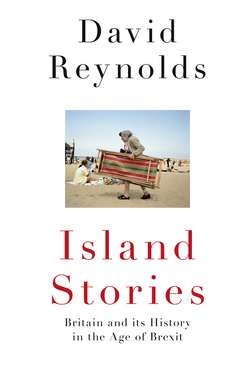Читать книгу Island Stories: Britain and Its History in the Age of Brexit - David Reynolds - Страница 8
1 Decline
ОглавлениеOf every reader, the attention will be excited by an history of the decline and fall of the Roman empire, the greatest, perhaps, and most awful scene in the history of mankind.
Edward Gibbon, 1788[1]
Thus began the final paragraph of Edward Gibbon’s magnum opus The History of the Rise, Decline and Fall of the Roman Empire. Volume one had appeared in 1776, just as the American colonies declared independence from Britain and proclaimed themselves a republic. The sixth and last volume was published in 1788, a year before ancien régime France was engulfed by revolution. Its fratricidal anarchy would spawn Napoleon’s continental empire.
Gibbon’s chronicle of the Pax Romana became a literary classic during the nineteenth century, as Britain saw off the Napoleonic challenge and grew into a global power – spanning the world from India to Africa, from the Near East to Australasia. By the end of the century the term Pax Britannica had entered the vernacular. But there were also creeping fears of imperial mortality – captured by Rudyard Kipling, the bard of empire, in his fin de siècle poem ‘Recessional’:
Far-called, our navies melt away;
On dune and headland sinks the fire:
Lo, all our pomp of yesterday
Is one with Nineveh and Tyre![2]
An 1879 Punch cartoon by John Tenniel shows John Bull the ox carrying the world’s woes on his back – Russia, Afghanistan, Egypt, Scotland (a recent financial scandal in Glasgow), a striker and a gleeful African warrior from the costly Zulu Wars.
Britain’s Victorian and Edwardian leaders sought strategies that might save their unlikely empire from a Roman fate. How best to deal with jealous rivals? By military confrontation, or selective appeasement? The first could sap the nation’s wealth and power; the latter risked letting in the barbarians by the back door. They also wrestled with the Roman tension between libertas and imperium, of civic virtues supposedly corrupted by militarism and luxury. Would British imperialism undermine political liberty at home? Conversely, would a freedom-loving people have the backbone to resist the jackals of the global jungle? These dilemmas became acute during the era of the two world wars.
On a larger canvas, Gibbon’s Rome has provided a template for telling the story of Britain’s changing place in the world over the last five centuries in terms of a great empire’s rise, decline and fall. This held a perennial, almost mesmeric fascination for a political class that modelled itself on imperial Rome. Under this narrative, however, lurk problematic notions of empire. Should it be understood as a clearly defined possession – eventually ‘lost’ or ‘surrendered’? Or was it like an increasingly outmoded and ill-fitting suit of clothes, which was finally tossed aside? This chapter looks more closely at Britain’s changing global role and at related shifts in the country’s power and prosperity – arguing that the Gibbonian concept of ‘decline’ is deeply misleading. In doing so, it also highlights a recurrent pattern of British political rhetoric from the late nineteenth century right up to the present. Politicians have frequently couched their campaigns to change national policy within a dramatic ‘declinist’ narrative of the recent past. Here are a few examples.[3]
